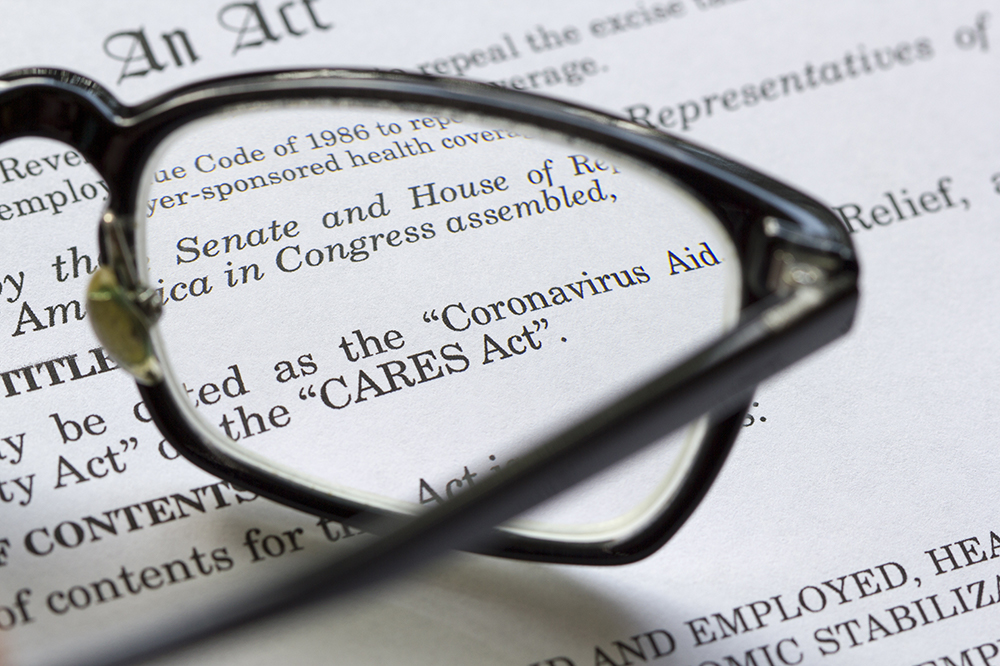While many are facing difficult times, our lives and business do not stand still. Tax and financial planning are critical, and we urge our friends to be proactive. The following are some of the more notable provisions that will affect your CARES Act Tax Planning.
Tax treatment of Stimulus Check – $1200
Technically, the rebate is an advance payment of a special 2020 tax credit. You’ll reconcile your rebate on your 2020 return. For most people, the rebate will equal the tax credit allowed. Taxpayers whose credits exceed their rebates can claim the balance on their 2020 returns. We expect you won’t have to repay the IRS if the payment you received is more than your credit.
Charitable deductions
For taxpayers who itemize, cash contributions are not subject to a cap of 60% of AGI for the 2020 tax year. You may deduct cash gifts that qualify under Section 170(b)(1)(A) up to 100% of Adjusted Gross Income for this tax year only.
For taxpayers who do not itemize, Charitable contributions of up to $300 may be deducted above the line on your 2020 return only. The $300 deduction will offset any and all types of income on a dollar for dollars basis.
Retirement Plans
The early withdraw penalty of 10% has been suspended for 2020 calendar year distributions taken for coronavirus-related hardships up to $100,000. Taxation on the distributions may be spread over three years. Additionally, if the IRA funds are recontributed within a three-year period, they will not be subject to income tax nor subject to the annual contribution limits.
For those over the age of 70½, the required minimum distributions have been suspended for the 2020 tax year.
401(k) loan limits increased from $50,000 to $100,000 – please borrow only when financially necessary, as it is often difficult to repay these loans which may have a direct effect on your retirement savings.
Delay in Payroll Taxes
Some employers and self-employed individuals chose to defer payment of the employer’s share (or the corresponding share of self-employed individuals) of the FICA (Federal Insurance Contributions Act) payments due on 2020 wages. The 6.2% rate is imposed on employers on each employee’s wages that do not exceed $137,700 for the 2020 calendar year. Fifty percent (50%) of the deferred 2020 tax is due to be paid by December 31, 2021 and the remaining 50% is due on December 31, 2022.
Net Operating Losses
CARES Act lifted the 80% rule had repealed the net operating loss (NOL) carryback rules by reinstating them for 2018, 2019 and 2020 losses. A taxable loss in 2020, may be carried back five (5) years to reduce income in those years and maximize the tax benefit of such loss. Losses incurred in 2021 will not be eligible for any carryback. If you are trying to increase your cash flow, file an NOL to carryback the loss to prior years’ returns to create a refund.
We will continue to monitor the latest relief bill being negotiated by Congress and share these benefits with you. Please reach out to me with any questions or planning needs at 317-636-5561 or ppittman@ppittman.com.
Be safe and remain healthy.




